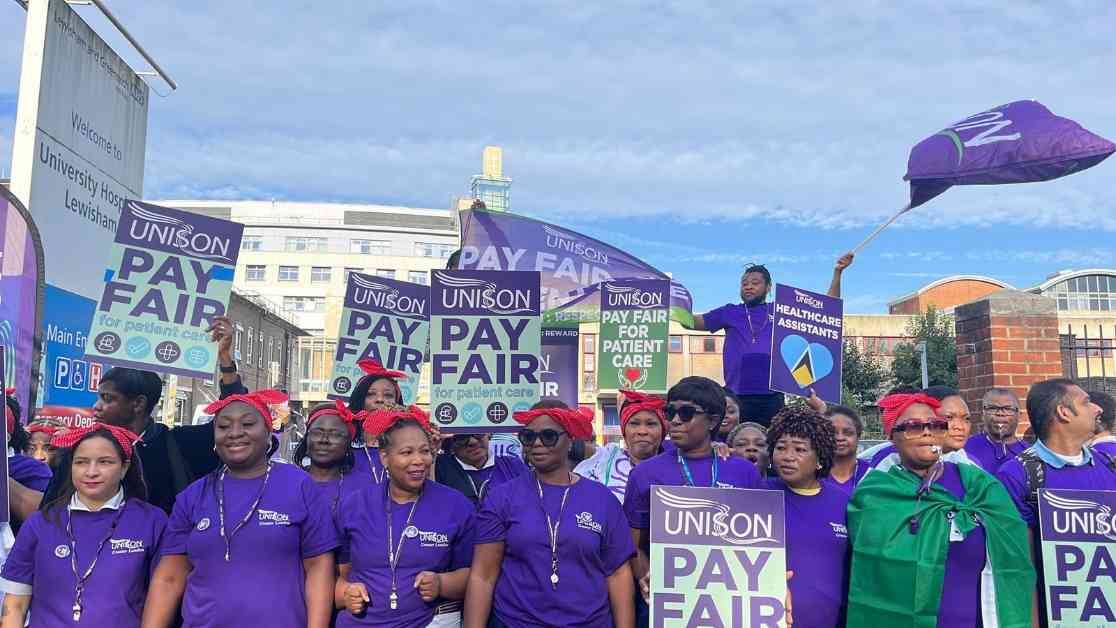Healthcare Support Workers in South London Hospitals Stage Historic Strike
Hundreds of healthcare support staff at University Hospital Lewisham and Queen Elizabeth Hospital in South London have taken a historic step by walking out for 48 hours in a dispute over pay. This strike marks the first time healthcare support workers in London have gone on strike independently of national NHS disputes, signifying a growing frustration among these essential frontline workers.
Union officials, including the general secretary of Unison, Christina McAnea, have joined the support workers on the picket line to show solidarity and support for their cause. The workers, employed on Band 2 of the NHS Agenda for Change pay scale, primarily provide personal care services such as feeding and bathing patients. However, they also regularly perform clinical tasks such as taking and monitoring blood, conducting electrocardiogram tests, and providing wound dressings.
Tracy Snipp, a healthcare assistant at the trust for eight years, shared her experiences and reasons for participating in the strike. She emphasized the increasing pressures and demands faced by healthcare support workers, especially in light of the COVID-19 pandemic. Despite their vital role in patient care, these employees feel undervalued and undercompensated for the work they do.
The main point of contention in this dispute is the lack of fair compensation for the clinical tasks performed by healthcare support workers. NHS guidance suggests that these tasks should be compensated at the higher Band 3 level pay, potentially increasing salaries by as much as £2,000 annually. However, the Lewisham and Greenwich NHS trust has refused to adjust rates or provide back pay for the work already done, leading to frustration and disillusionment among the support staff.
Ms. Snipp expressed her disappointment and frustration with the trust’s response, highlighting the financial strain and mental toll that the current situation has placed on her and her colleagues. Many healthcare support workers find themselves working extra shifts just to make ends meet, with some even considering leaving the profession due to financial hardships.
The ongoing consultation between the trust and unions has yet to yield a resolution, further fueling the workers’ determination to fight for fair compensation and recognition of their contributions. Ms. McAnea emphasized the need for the trust to acknowledge and address the valid concerns raised by the healthcare support workers, echoing similar disputes that have been successfully resolved in other parts of the country.
As the strike continues, the impact on patient care and hospital operations remains a concern for both the healthcare support workers and the trust. While the trust has assured that necessary steps will be taken to care for patients during the strike, the absence of a significant portion of the workforce inevitably poses challenges and disruptions in delivering quality healthcare services.
In conclusion, the historic strike by healthcare support workers in South London hospitals sheds light on the vital yet often overlooked role played by these frontline workers in the healthcare system. Their demands for fair compensation and recognition of their contributions are not only justified but essential for ensuring a sustainable and equitable healthcare workforce. As the dispute unfolds, it serves as a reminder of the importance of valuing and supporting all healthcare workers in their efforts to provide quality care to patients.

